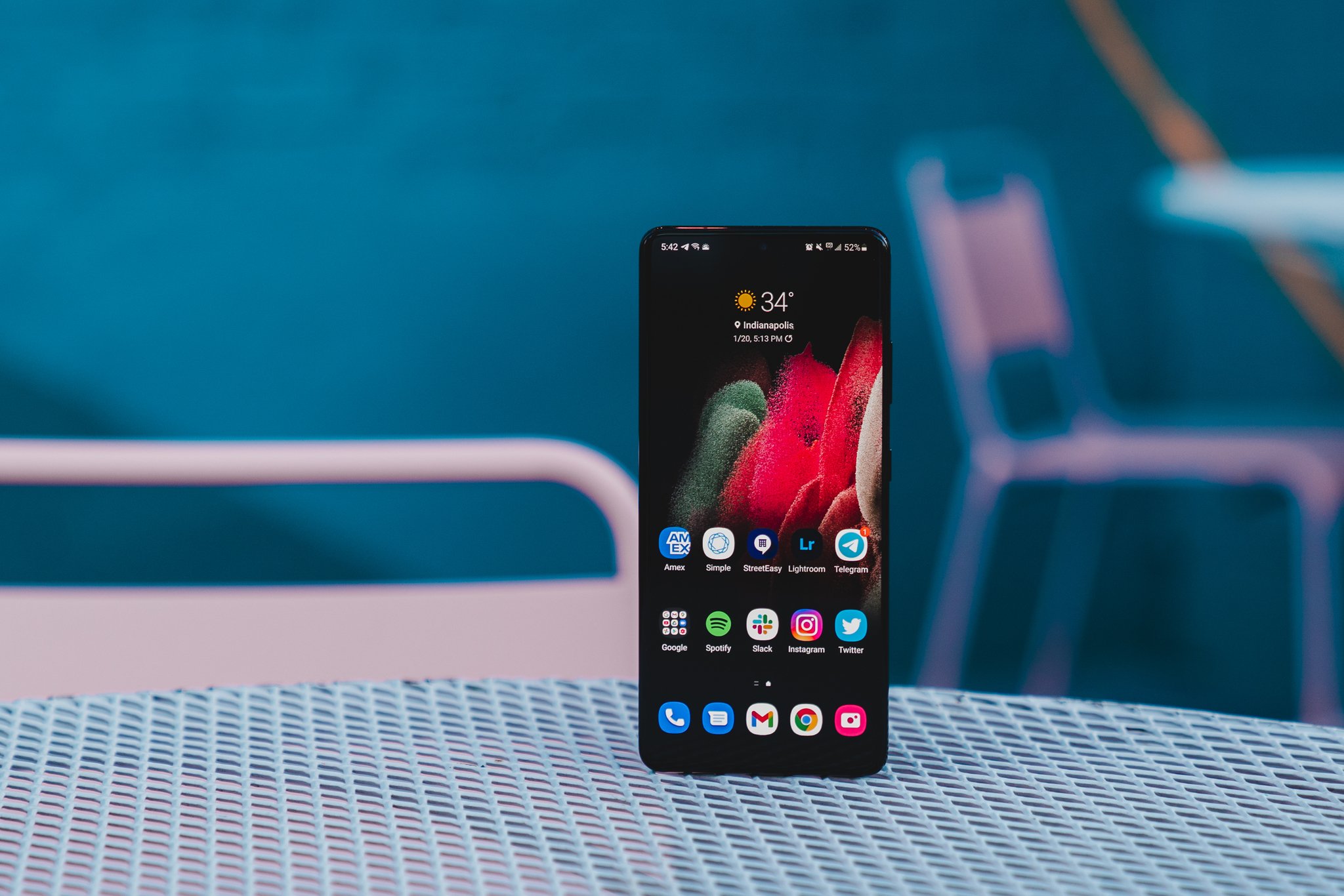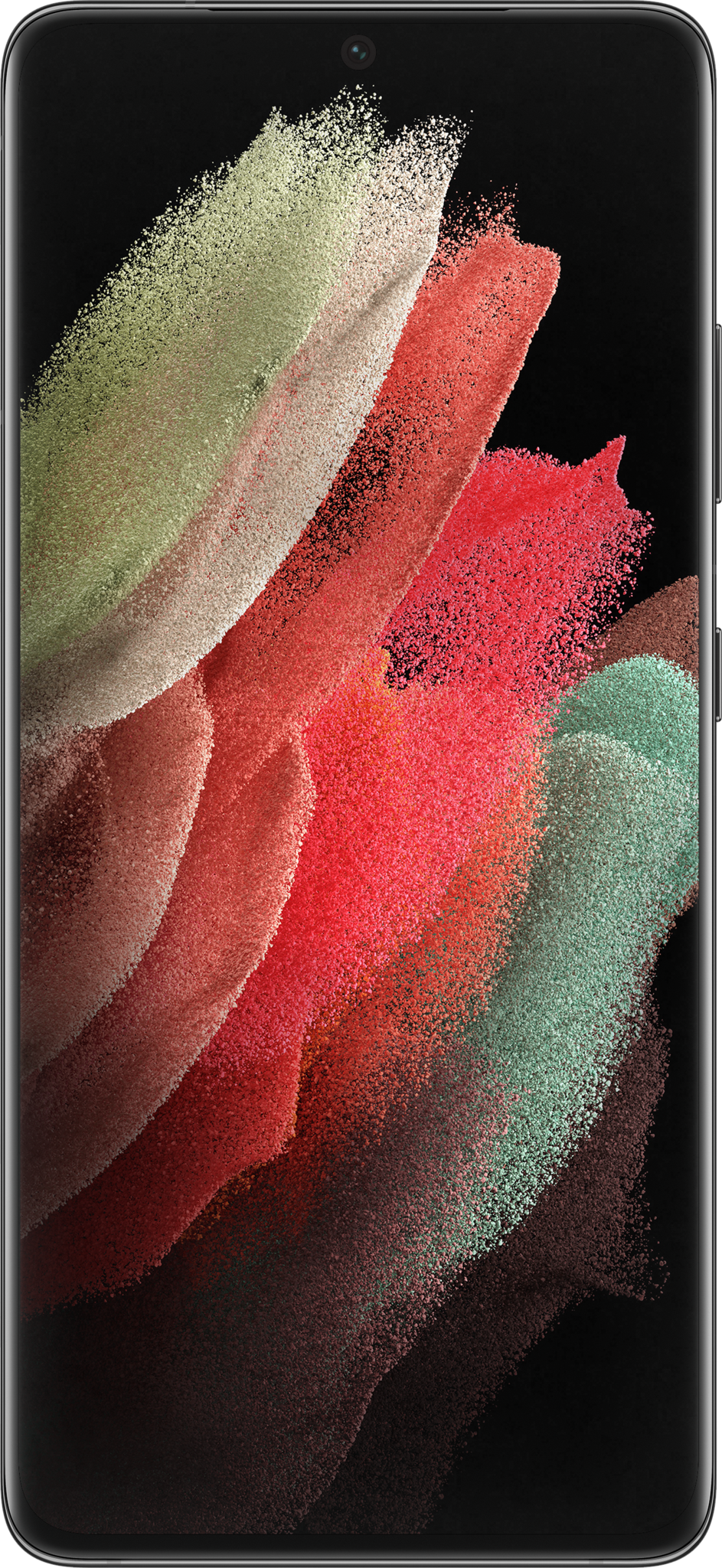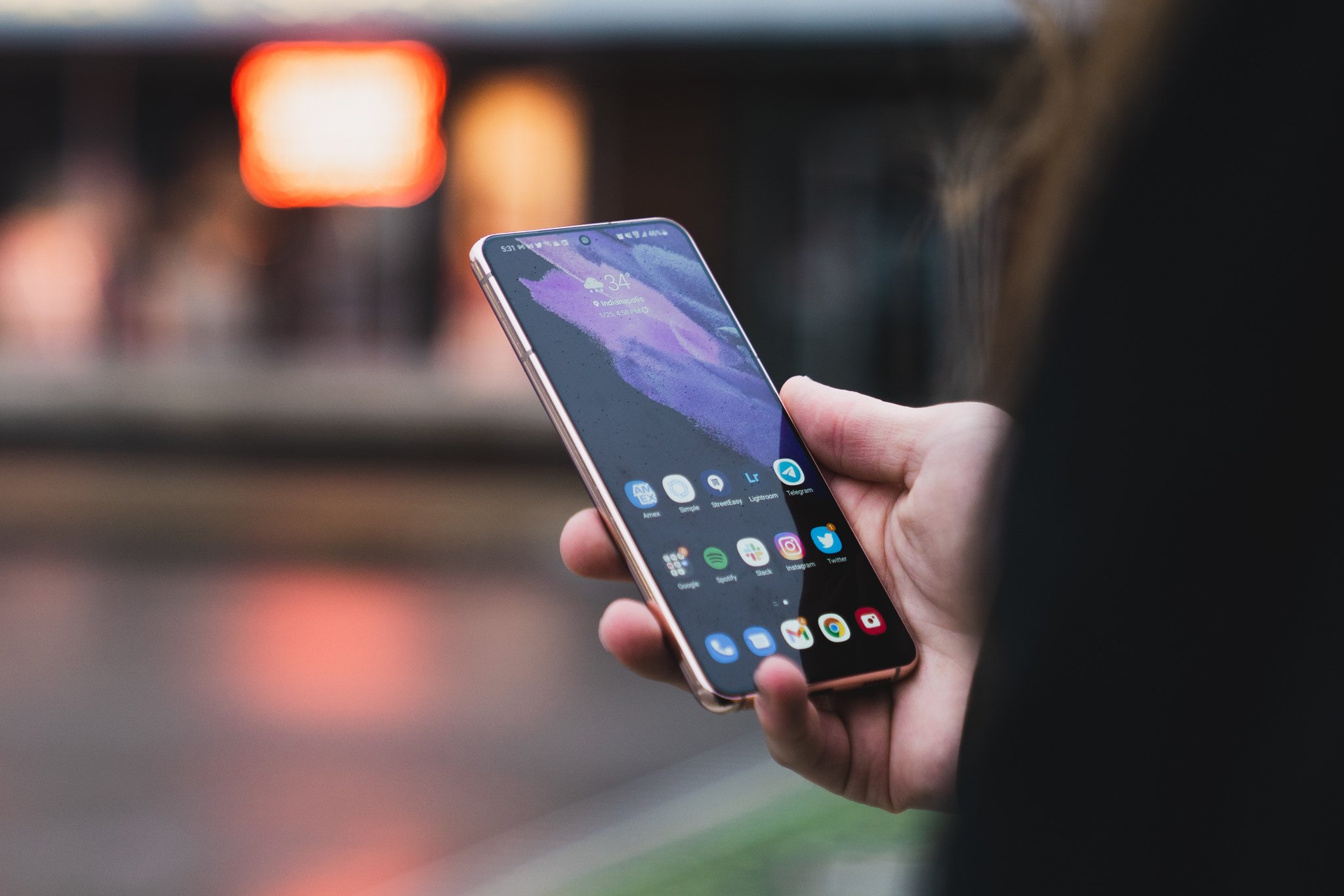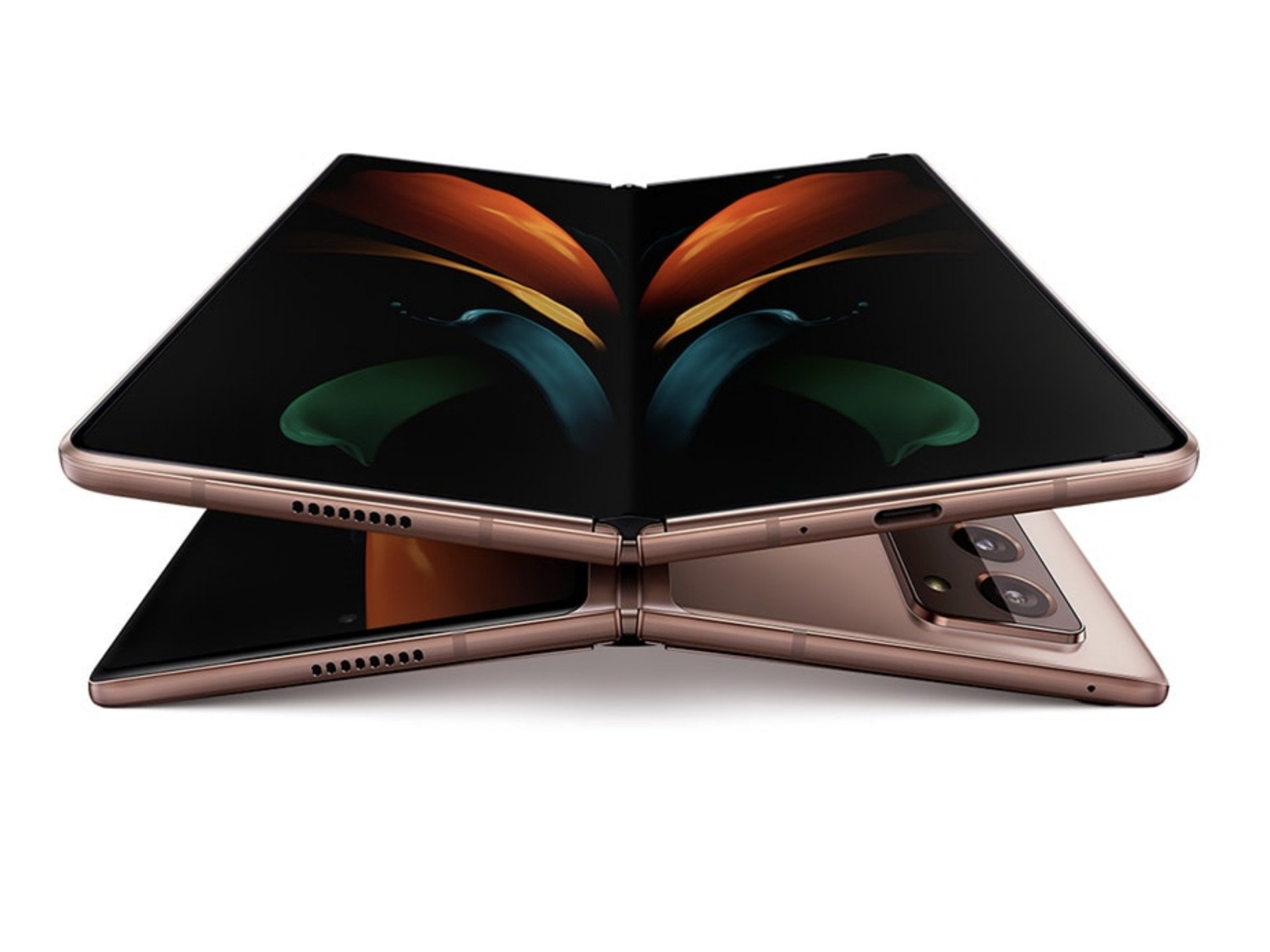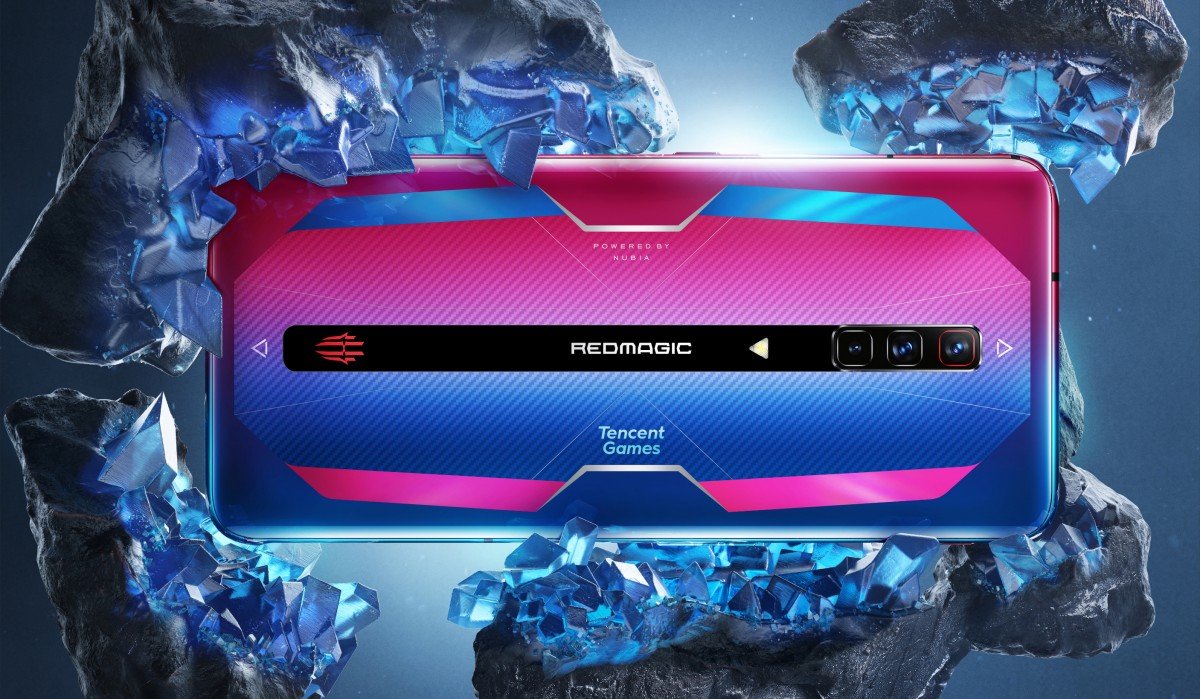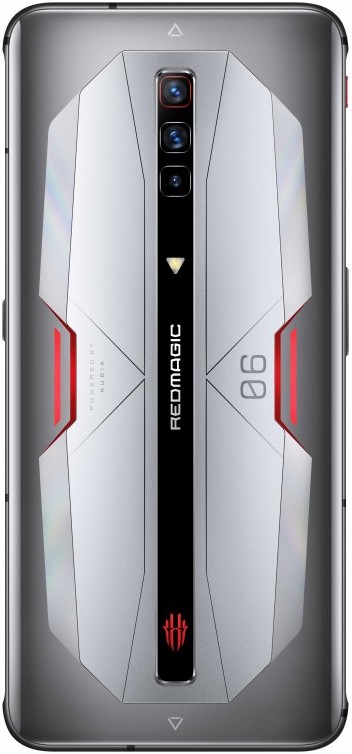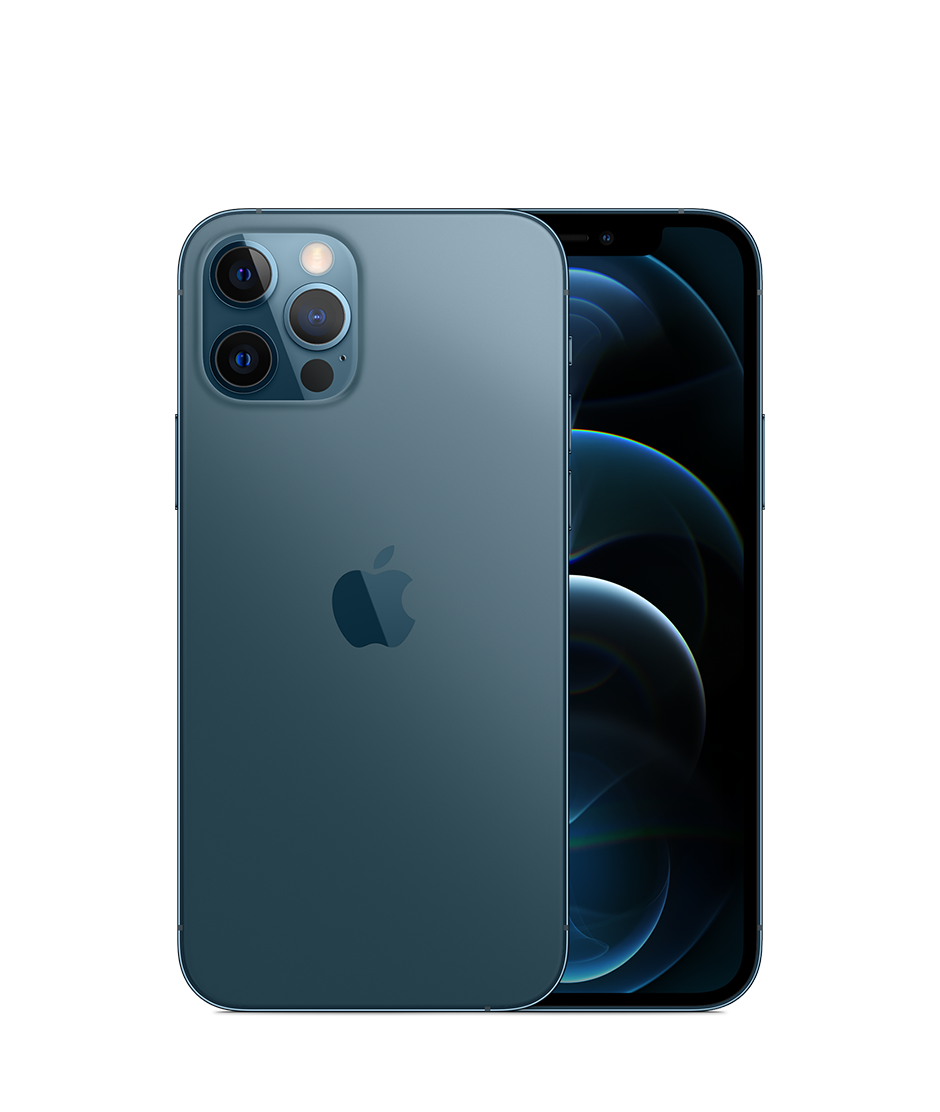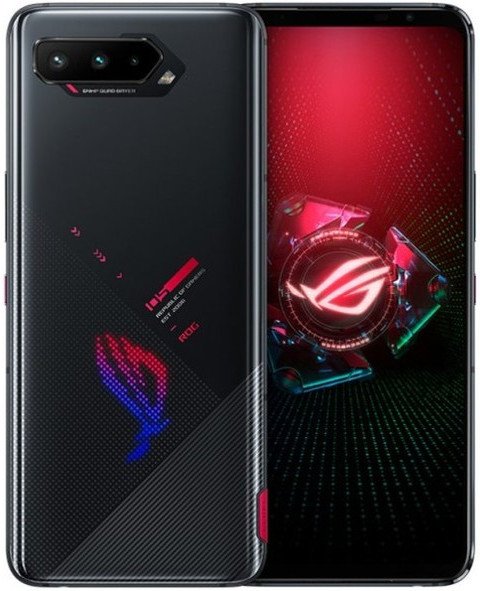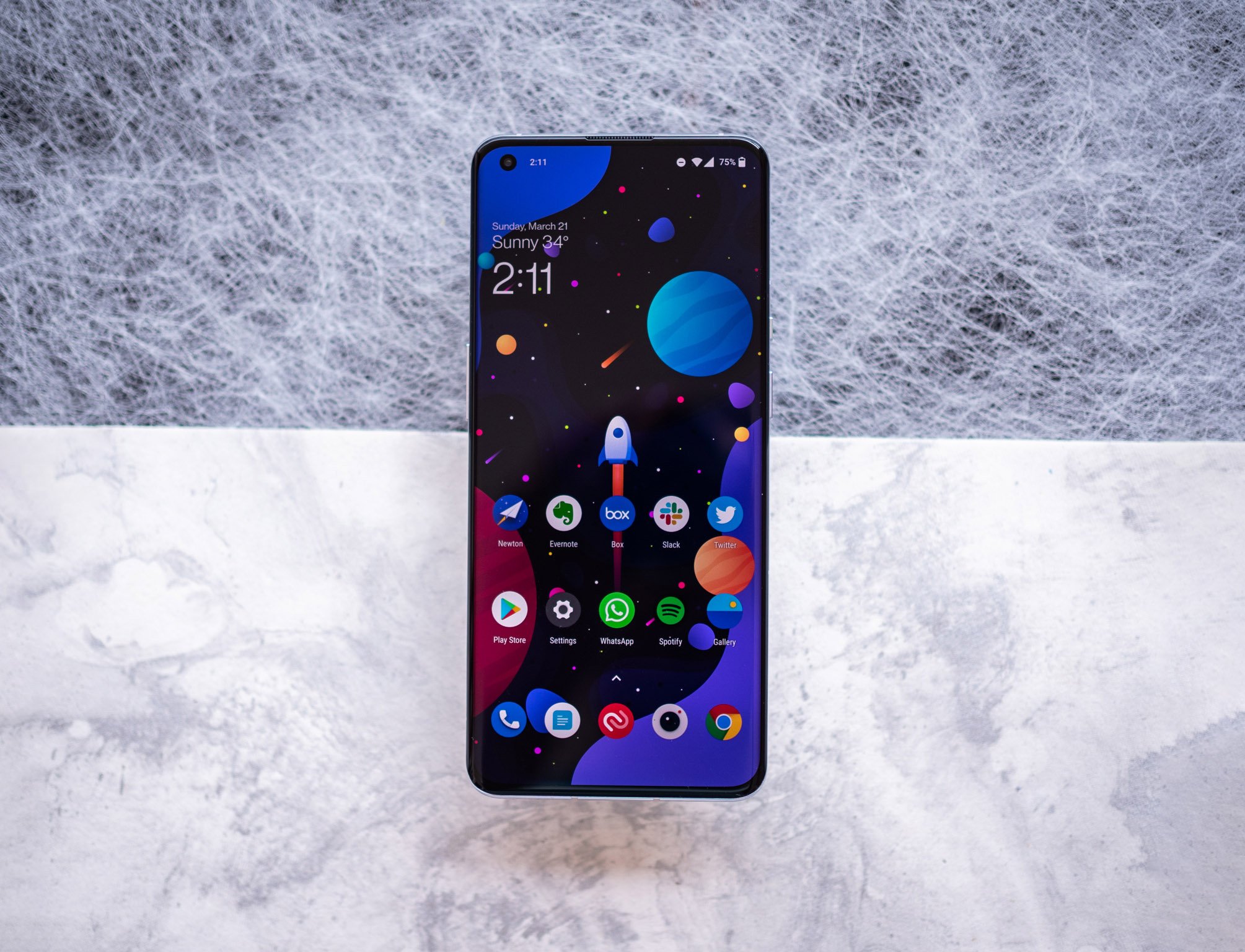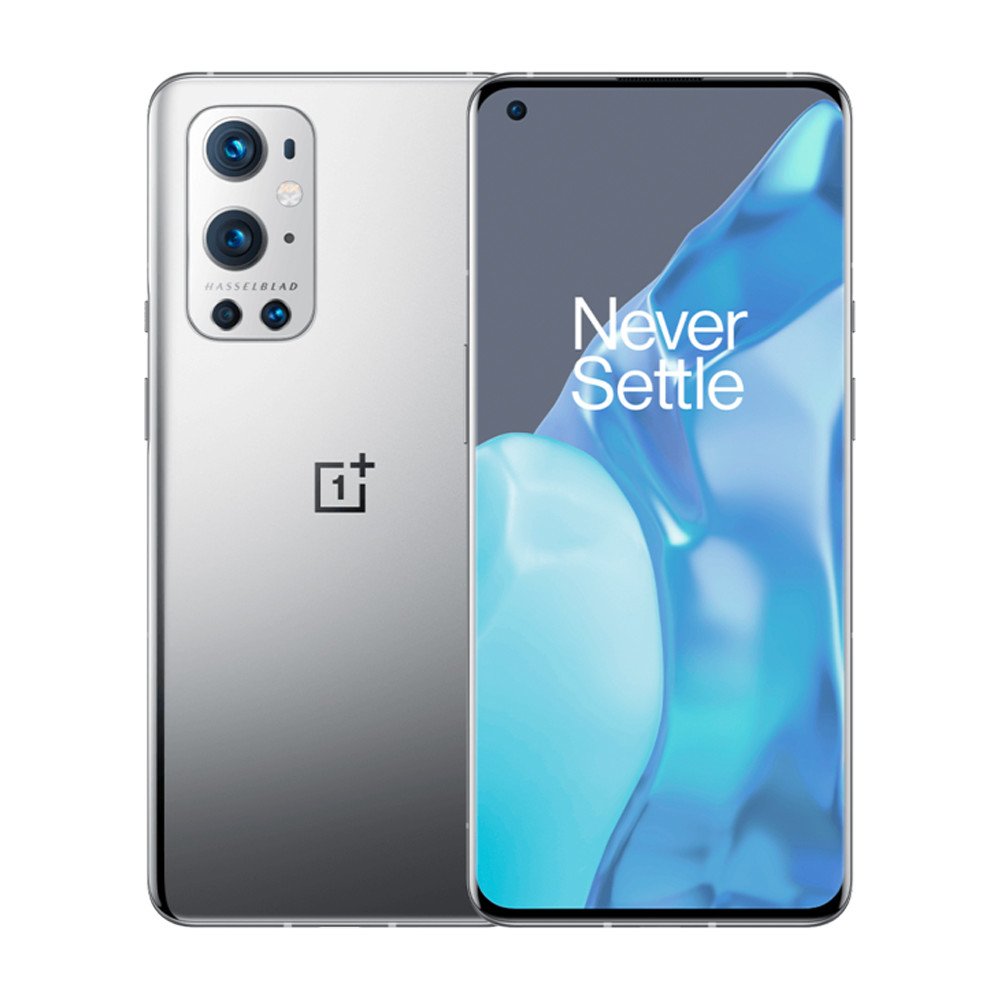The Galaxy S21 Ultra is the best gaming phone you can buy in 2021
Almost any phone can run popular free-to-play titles like Angry Birds or Subway Surfers, but for the more graphically demanding, you'll need one of the best Android phones for games. Some of the best Android games are PC or console ports that - even in their downgraded state - run significantly better with more powerful CPUs, more RAM, and faster display Hz. These games also drain batteries faster and take up enough storage that you may need a microSD card slot to fit them all. Add in-game streaming services like Google Stadia and Xbox Game Pass Ultimate (Microsoft Project xCloud), and you have every reason to make sure your next phone is capable of handling it all in stride. We think the Galaxy S21 Ultra is the best overall gaming phone, but if that doesn't strike your fancy or is out of your price range, there are plenty of other options worth considering. Here are some of the best Android phones for gamers.
Best Overall: Samsung Galaxy S21 UltraSamsung's annual offerings continue to push the limits of what we expect from smartphones, and that extends well into the world of mobile gaming. The new S21 lineup is among the most powerful we've ever seen, with the Galaxy S21 Ultra taking the crown for best Android phone for gaming by far.
Powering all of your games is some of the best silicon in the business. All S21 phones contain the Snapdragon 888, which reportedly show a 25% uptick in CPU performance and a huge 35% uptick in GPU compared to the Snapdragon 865 found in the Galaxy S20s. Based on the Snapdragon 888 benchmarks, it outstrips any other chip in multi-core CPU performance and only loses to the iPhone 12 in GPU performance.
Beyond the chipset, the S21 Ultra beats its siblings' hardware specs by most other gaming metrics. It has the highest pixels per inch (ppi) at 515, plus the largest display at 6.8 inches. It's the only phone of the three that can be upgraded past 8GB to 12GB or 16GB of memory. We'll also note that the S21 lineup rudely removed expandable storage; since the Ultra is the only model to offer 512GB of internal storage, it's your best bet for fitting a bunch of games at once.
We were most excited to note that the Galaxy S21 Ultra supports Quad HD+ resolution at 120Hz variable refresh rate simultaneously at up to 1500 nits of brightness. Other Samsung phones offer better graphics or better frames, but not both at once. Our Samsung Galaxy S21 Ultra review noted this mode is a battery-killer but looks fantastic enough that it's worth it. Plus, the giant-sized 5000mAh battery does its best to keep up.
You may prefer the Galaxy S21 for the lower price and lighter, easier to hold frame, and it will absolutely handle high-res graphics or fast-paced shooters with ease. For more dedicated smartphone gamers with cash to spare, though, the Ultra has our vote.
Pros:- Fantastic Super AMOLED display
- 120Hz refresh rate at QHD+ resolution
- Snapdragon 888 with 16GB of RAM
- Giant battery
- IP68 water resistance
- Gaming Mode and Game Launcher
- There isn't a headphone jack
- No expandable storage either
- Large display makes it harder to hold
Go big or go home
The Samsung Galaxy S21 Ultra is an absolute workhorse that delivers top-tier performance on a beautifully fast display.
Best Value Samsung Galaxy S21Samsung doesn't explicitly market the Galaxy S21 as a gaming smartphone, as it focuses more of its marketing machine on other features. But it wouldn't be wrong to throw in a comment or two about its gaming chops. It won't be as rugged or robust as the S21 Ultra, but it can handle its fair share when you use it right.
For instance, it does just fine streaming games from Xbox Game Pass, working like a charm when pairing it with a compatible Bluetooth controller. The 120Hz refresh rate gives the screen the fluidity necessary to keep games looking smooth, while the Snapdragon 888 inside should be more than enough to handle today's latest mobile titles. The 6.2-inch display is on the smaller side, so this is less about screen real estate, and about doing more with less.
Battery life holds up well because the 120Hz refresh is dynamic, so it doesn't kick in for everything you do on the device. However, it's also because the resolution is lower. At 2400 x 1080, there aren't as many pixels as a QHD display would have, so you may not like that spec if you're a stickler for visual quality. That doesn't mean the screen isn't still a beauty to look at, just that it doesn't match what other gaming phones can do.
Pros:- Nice display with 120Hz refresh rate
- Internals can handle games
- Great haptics
- Easy to hold and carry
- Color options
- Not as high resolution
- Lacking features of S21 Ultra
Gots the goods to game
The Galaxy S21 isn't held back too much when it comes to playing games, and it's got enough to let you enjoy them.
Best for Large Display Samsung Galaxy Z Fold 2If you're looking to buy a foldable smartphone in 2021, there's really only one option worth considering: the Galaxy Z Fold 2, which fits in your pocket but expands to the size of a small tablet. Cloud gaming means that you're playing titles meant for TVs on a tiny screen, but larger phones can be uncomfortable to hold in one hand for non-gaming tasks. This foldable lets you switch between a smaller or larger display at will, giving you more gaming real estate when you need it.
The inner display, which appears when you unfold the phone, sits at 7.6 inches of AMOLED with a 120Hz refresh rate and a unique 22.5:18 aspect ratio. It may not have the highest ppi compared to other phones at 373, but in all other aspects, the Galaxy Z Fold 2 majorly outshines all the other displays on this list. When using the touchscreen, your thumbs won't obstruct as much of the display as usual, and the extra vertical space is helpful for games like shooters where you need to see as much as possible. You can even use the extra space for a multi-window setup and have another app open simultaneously.
For graphical power, it runs off of the Snapdragon 865+, which gives you a 10% graphical boost on the standard 865 even if it doesn't match the new 888 in performance. Add in 12GB of RAM and a decent 256GB of storage - with no expandable slot, unfortunately - and you have a phone built to handle high-end games with aplomb. Plus, the 4,500 mAh battery is no joke.
Pros:- Huge gaming display that bleeds to the edges
- 120Hz refresh rate
- Great battery and cameras
- Single-display mode comfortable to hold for non-gaming
- Future-proofed with powerful specs and 5G support
- No expandable or 512GB storage
- Very expensive
- No water resistance
Two displays, one phone
The Galaxy Z Fold 2 may look odd, but its hardware specs and software performance aren't a gimmick. It's a real gaming machine.
Best Advanced Features Nubia RedMagic 6 ProYou don't need to be very familiar with Nubia, or even recognize that it's a sub-brand of ZTE. What you do need to know is that its RedMagic 6 Pro is one of the most fully-featured gaming phones you can buy, so if your interest in mobile gaming has you seeking something unique, you owe it to yourself to consider picking it up.
There's a lot about the RedMagic 6 Pro that stands out. Starting first with its display, the phone sports a 6.8-inch AMOLED, along with a jaw-dropping 165Hz refresh rate. That's a technically impressive feat, and one you won't find on another phone like the Galaxy S21 Ultra. Its smoothness contributes to a wonderful gaming experience, just as Qualcomm's Snapdragon 888 processor does. With up to 16GB of RAM and 256GB of internal storage, including 5G connectivity, it has plenty to enjoy a good game with.
Being a gaming phone, it really stands out with features catering to those expectations. The RedMagic 6 Pro has built-in triggers on the phone's frame for more precise controls, plus an improved cooling system that includes an active fan to keep those rising temperatures in check when necessary. Even with all that, Nubia managed to squeeze in a 5,050mAh battery and include a 66W charger. In just 38 minutes, you can go from empty to full power.
Pros:- Unmatched 165Hz AMOLED display
- Robust cooling system
- Fast Qualcomm processor with tons of RAM
- Built-in trigger buttons for extra control
- 5,050 mAh battery + 66W charging
- Design isn't for everyone
- Mediocre cameras
A phone that goes all-in on gaming
Features such as trigger buttons and a 165Hz display allow the RedMagic 6 Pro to stand out in a big way.
Best for Stadia Google Pixel 5The Google Pixel 5 is another phone that isn't strictly known as a gaming device. It runs the Snapdragon 765G, popular for mid-range phones and capable of running most Android games easily, but not built for high-end performance. For cloud gaming, which uses remote servers to power your game instead of relying on hardware, the Pixel 5 and its 8GB of RAM is up to the task. Especially for Stadia, since Google offers three free months of its Stadia Pro subscription to all-new Pixel 5 owners.
The 6" AMOLED display is smaller than most of the other best Android phones for games, but it can run content in 4K at 60 FPS, matching the top output that Stadia can deliver right now. It only has 128GB of storage, but you won't need any storage for cloud games. And its 4,080 mAh battery performed well in our tests, so it can support long gaming sessions before you need to stick it on its wireless charger.
We'll also point out that the Pixel 5 is great for everything outside of gaming as well, thanks to its top-of-the-line cameras to its Android 11 OS. As for Stadia, it has come a long way as a platform since it launched in 2019. It allows you to play the best Stadia games like Cyberpunk 2077, Assassin's Creed Valhalla, and Hitman 3 right on your smartphone. How cool is that?
Pros:- Guaranteed updates through October 2023
- Clean, minimalistic design
- 90Hz AMOLED display
- Flagship performance
- Stadia compatibility
- Excellent battery life
- Snapdragon 765G isn't built for power
- No expandable storage
- Somewhat small display
The phone for game streaming
Google Stadia brings console-quality game streaming right to your pocket, and the Pixel 5 is the phone we recommend for it.
Best for iOS Apple iPhone 12 ProSince we're looking at gaming phones as a whole, we'd be remiss if we wholly ignored Apple's offerings. Apple doesn't officially allow cloud gaming apps, but you can load them through your browser, and the App Store has some demanding games that rely on the iPhone's impressive graphical tech, including Apple Arcade games.
The entire iPhone 12 lineup shares the new A14 Bionic chipset, which is probably the only CPU that can go toe-to-toe with the S21 Ultra's Snapdragon 888. But we're recommending the Pro lineup (including the Max if you have a bit more money to spare) because it hits 6GB of RAM versus 4GB with the base and Mini models - not great regardless, but every little bit helps. The Pro models are also the only phones to hit up to 512GB of storage, have better typical brightness, a few extra hours of battery life, and superior cameras thrown in for good measure. They also give you more display space at 6.7" for the iPhone 12 Pro Max and 6.1" for the iPhone 12 Pro.
Above all else, if you're buying an iPhone, it's probably because they're so easy to use thanks to Apple's constant improvements to the platform. You'll get the latest version, iOS 14, along with full support for upcoming releases and security patches for years to come - probably for longer than any Android phone, if we're being honest.
Pros:- 6.1-inch Super Retina XDR display
- A14 Bionic chip is a performance beast
- Running iOS 14 with years of software support ahead
- Excellent cameras
- Only 6GB of RAM
- Only 60Hz maximum
- Battery life doesn't match iPhone 11 Pro
iOS gaming is for pros too
The iPhone 12 Pro delivers the design, performance, and price you'd want to get the most out of gaming on iOS.
Best for International Gamers: Asus ROG Phone 5You can already find a good gaming phone in the U.S., but if you aren't thrilled with the options available to you here, it's worth checking out some of the international models - specifically, the Asus ROG Phone 5. The phone isn't officially sold in the U.S. yet, though you can still import it via Amazon without too much hassle if you don't want to wait. The one caveat is that it's often available as a GSM-only unit, meaning it lacks the CDMA compatible with Verizon and Sprint's networks.
There are also three variants: a standard model, the Pro, and the Ultimate. Which one you choose is largely up to you, but the standard one is certainly ready to play out of the box. It's noticeably heavier and bigger than other handsets with AMOLED screens around 6.78-inches, some of which is understandable, given the room necessary to accommodate things like AirTriggers, a second USB-C port to charge, and a 5-pin pogo connector to attach the AeroActive fan accessory.
A new design for Asus' GameCool system siphons heat away from the device's internals, as well as from the periphery, so your hands don't feel any discomfort. That matters when the Snapdragon 888 chipset has to push to ensure everything stays smooth throughout. It will, and that 144Hz refresh rate will look buttery as a result.
Pros:- Beautifully designed
- Stereo speakers and headphone jack
- 144Hz refresh rate
- Improved cooling system
- Hefty 6,000 mAh battery
- No water resistance
- Bigger and heavier build
Tons of value across the ocean
With its excellent display, solid specs, and distinct design, the Asus ROG Phone 5 brings a lot to the table.
Best for Widescreen Gaming OnePlus 9 ProOnePlus may not be top of mind when it comes to mobile gaming, but there's a combination that works here. Starting with the 6.7-inch AMOLED display, which is gorgeous, the OnePlus 9 Pro has the visual splendor you can appreciate when playing a game. The 20:9 aspect ratio isn't unique yet somehow feels wider on this phone. Couple that with a solid slate of internal specs, like the Snapdragon 888 processor, and plenty of RAM, and you get something robust to play with.
Unfortunately, you won't get the 144Hz or 165Hz refresh rates true gaming phones now offer, but the 120Hz variable rate works really well. Smooth gameplay shouldn't be a problem, especially with a new vapor chamber cooling system to keep excess heat at bay. Touch-centric games get a nice boost from the 360Hz touch response rate, a clear upgrade from the 240Hz rate in the OnePlus 8 Pro. And the haptics are already good, which makes those games feel more tactile.
Use this phone with any game on Google Play or Xbox Game Pass, and you should have no issues. Same with playing Fortnite, whether you use a controller or not. Battery life holds up well, and with OnePlus' own Warp Charger, you could be back up and playing again a lot faster than before.
Pros:- Gorgeous display
- Improved cooling system
- Nice haptics for tactile feel
- Solid internals to keep playing
- Excellent software
- No 144Hz refresh rate
- Not a 21:9 aspect ratio
Ready to entertain
The OnePlus 9 Pro is a great gaming phone when you give it a chance to display and run the games you like most.
Bottom lineIf you're upgrading to a new phone and want something that can handle gaming with ease, the Samsung Galaxy S21 Ultra is your best bet. It's an easy contender for phone of the year and is packed with pretty much all of the features you'd want for gaming and daily use.
Without a doubt, one of the best aspects of the Galaxy S21 is its display. Samsung's AMOLED tech is just as vibrant and colorful as ever, but this time around, it enables QuadHD+ graphics at a 120Hz refresh rate. This results in your eyes being treated to the very best display that exists on a smartphone right now, which contributes to a better user experience whether you're gaming or using your phone for other tasks.
Another highlight of the S21 Ultra is its sheer specs. With a Snapdragon 888 processor, up to 16GB of RAM, 512GB of storage, and a 5000 mAh battery, this is a phone that's outstandingly fast, has plenty of room for all of your local files/games, and can easily get through a full day of use.
The S21 Ultra isn't a cheap or affordable device, but if you have the means to buy it, it's without a doubt the best Android phone for games.
Credits - The team that worked on this guideJoe Maring is Android Central's Senior Editor and has had a love for anything with a screen and CPU since he can remember. He's been talking/writing about Android in one form or another since 2012 and often does so while camping out at the nearest coffee shop. Have a tip? Reach out on Twitter @JoeMaring1!
Michael Hicks got his tech start in 2016, covering emerging tech like VR and self-driving cars before expanding to all things tech. As Android Central's newest Senior Editor, he covers everything from laptops to soundbars, home security, gaming, and fitness watches.
